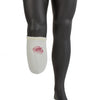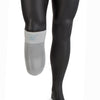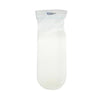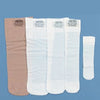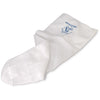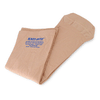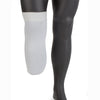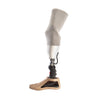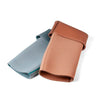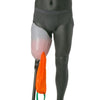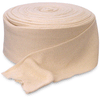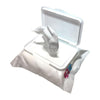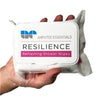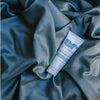Deodorant - A Primer
Do all antiperspirants contain deodorant? Are deodorants the same thing as antiperspirants? There's often some confusion about the difference between an antiperspirant and a deodorant, even though what they do is right in the name. An antiperspirant keeps you from perspiring, while a deodorant stops odor. Both are useful for active amputees who are prone to heavy sweating. If you notice an unpleasant odor emanating from either your limb or your prosthetic socket and cleansing isn't cutting it, it's probably time to add a deodorant to your daily skin care routine.
WHAT'S THE DIFFERENCE BETWEEN ANTIPERSPIRANT & DEODORANT
To understand how deodorants and antiperspirants work, you've got to understand sweat. Your skin is full of sweat glands that fall into two categories, either eccrine or apocrine. Eccrine sweat is what you wring from your prosthetic socks at the end of a long day. The eccrine sweat glands secrete a mixture of water and salt in order to cool you off. It's the apocrine glands that are giving you B.O.
That's because these glands carry sweat, fats, and proteins from within your body to the surface of the skin. Once they reach the skin surface, those fats and proteins react with bacteria -- that's what smells. Antiperspirants cut down on body odor by keeping you from sweating, but deodorants are made to eliminate odor. They contain specific ingredients that kill the bacteria that reacts to your sweat and makes you smell.
While most antiperspirants do contain some of the same ingredients that give deodorant its bacteria-killing power, their main job is to keep you from perspiring. Deodorants don't stop sweating -- if you apply a product that is just a deodorant (like many all natural deodorants that don't contain aluminum, the sweat blocking ingredient), you're going to perspire.
If you're prone to excessive sweating, your limb can develop an unpleasant odor. You can often control the smell through regular cleansing, but if heavy perspiration is the underlying problem, you should introduce a deodorant to your skin care routine.
WHAT ARE THE INGREDIENTS IN DEODORANT?
Deodorant is designed to target odor-causing bacteria through ingredients like triclosan, which make your skin too salty or acidic to support the bacteria that thrives there. If there's no bacteria, there won't be a smell.
WHAT KIND OF DEODORANT IS BEST FOR ME?
The ingredients in many common deodorants can cause skin irritation, but many all-natural deodorants contain ingredients like soothing oils, aloe, or vitamins that actually help prevent skin reactions. Not only are these deodorants great for the environmentally minded, they're also suitable for sensitive skin. Overall, when it comes to purchasing deodorant (and many other personal care products), you may not know what kind you like until you've tried a few for yourself.
HOW DO I USE IT?
Unscented deodorant with natural ingredients is safe to combine with antiperspirant for use on the skin. Your socket can also get funky from all the moisture it retains. Deodorant sprays are often used to neutralize odors in the prosthetic socket.
Related Articles:
- Don't sweat it! Vacuum Sockets
- When Nothing Else Works, Is Surgery An Option?
- What Are Sweat Control Prosthetic Textiles?
- Prosthetic Antiperspirant - A Primer
- Outsmart Sweat: How to Get Your Perspiration Under Control
- How Is That Different From Deodorant?
- Help! I'm Constantly Sweating Inside My Prosthesis!































